Accountable consumption and production
Every day at Valcucine, innovation is driven by respect for the environment and for man. Our history shows how attention to sustainability has
been an integral part of the company identity since its foundation in 1980. For over forty years, Valcucine has been designing and manufacturing
products in compliance with the highest sustainability parameters: dematerialisation, recyclability, circular economy, long technical and aesthetic
life.
Finding solutions that combine functionality and aesthetics is not enough. Today, a new paradigm is needed. A model of sustainable development
at all stages of the production process and design thinking. Intelligent design that makes a concrete contribution every day and re-establishes the
right relationship between man and nature. This results in products manufactured with lower consumption of raw materials and energy, easily
decomposable and recyclable at the end of their life cycle.
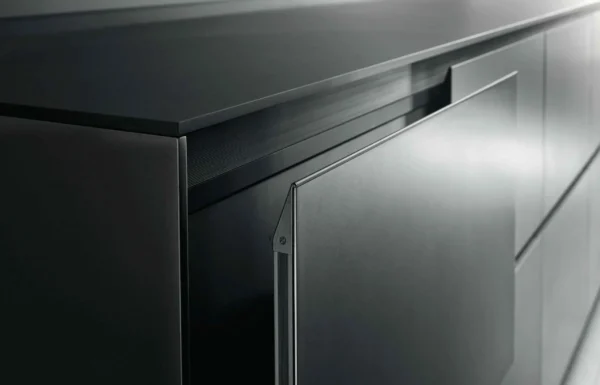
Dematerialisation
Thanks to continuous research into materials and their limits of resistance,
our construction technology allows us to reduce kitchen structures to the
essentials, without compromising on quality. The proposed solutions represent
‘resistant lightness’. And pave the way for the responsibility of the designer,
whose work can contribute to re-establishing the right relationship between
man and nature.
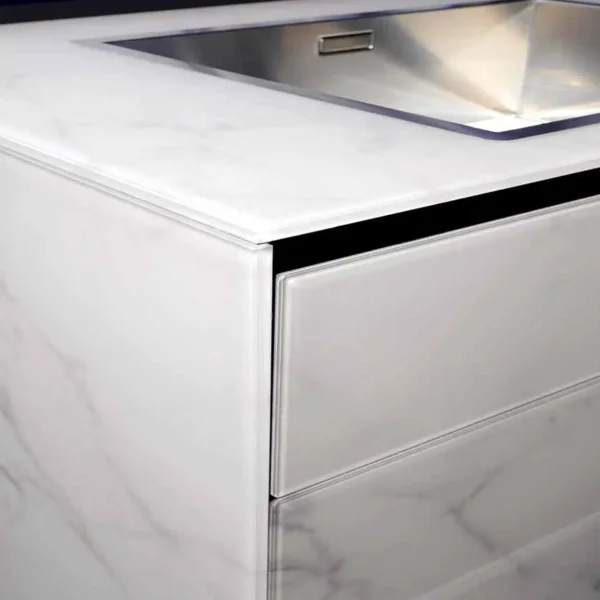
Recycling
We design our structures with elements that can be easily disassembled and
separated at the end of their life cycle and we use aluminium for our frames,
a material that is 100% recyclable and infinitely reusable to give life to new
products each time while maintaining its characteristics.
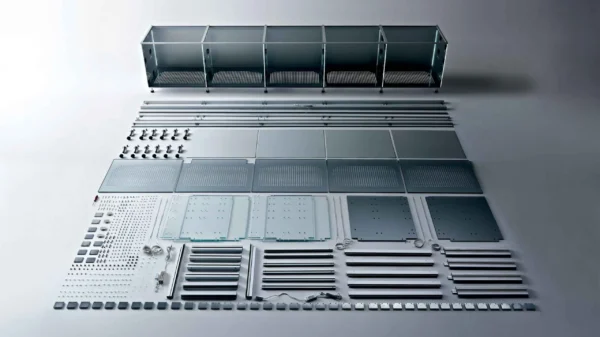
Circular Economy
In asking what industry can do for the environment, we can find the answer in the
shift from a linear economy, made up solely of consumption and waste, to a circular
one. Made up of production and consumption, but also of reuse and recycling.
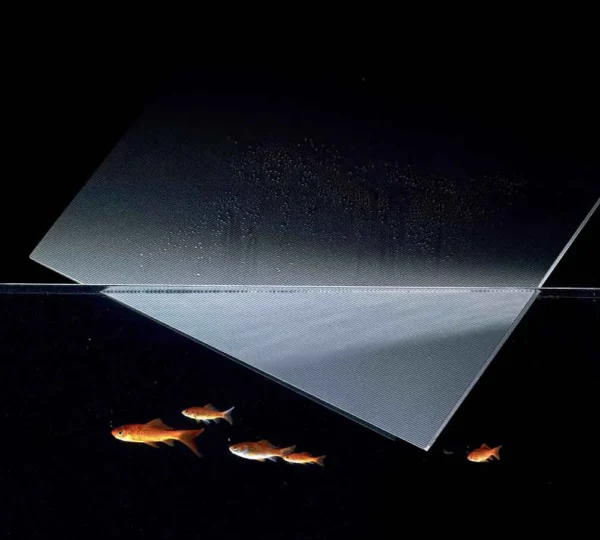
Technical Durability
The durability and reliability of our materials are the result of continuous quality analyses
and technical tests conducted to ensure the highest standards of light, heat, impact and
stain resistance.
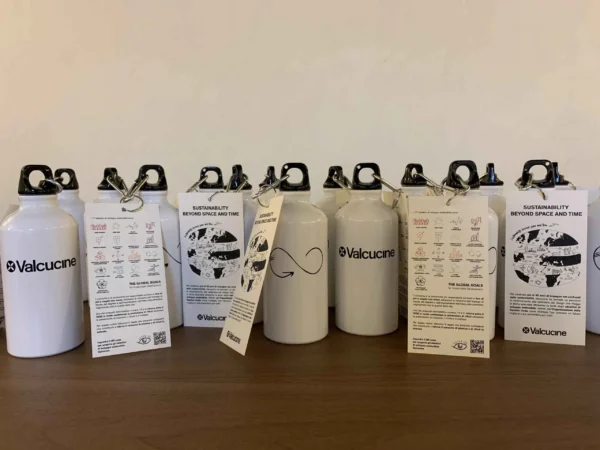
Everyday choices
To change things, we can also start with the everyday, with the choices we make every day. Among these, limiting plastic consumption is undoubtedly one of the most necessary. Italy, in fact, ranks second in the world for per capita consumption of bottled water with a good 224 litres per year (source: Censis 2018).
In order to discourage the consumption of drinks in disposable plastic containers, Valcucine has given all its employees a reusable aluminium water bottle as a present; a conscious choice that will contribute to reduce plastic consumption and waste in the company.
These day-to-day choices are embodied in a set of operational standards that must guide a company’s operations to ensure the achievement of certain environmental, social and corporate governance outcomes.
Discover our Future Goals
